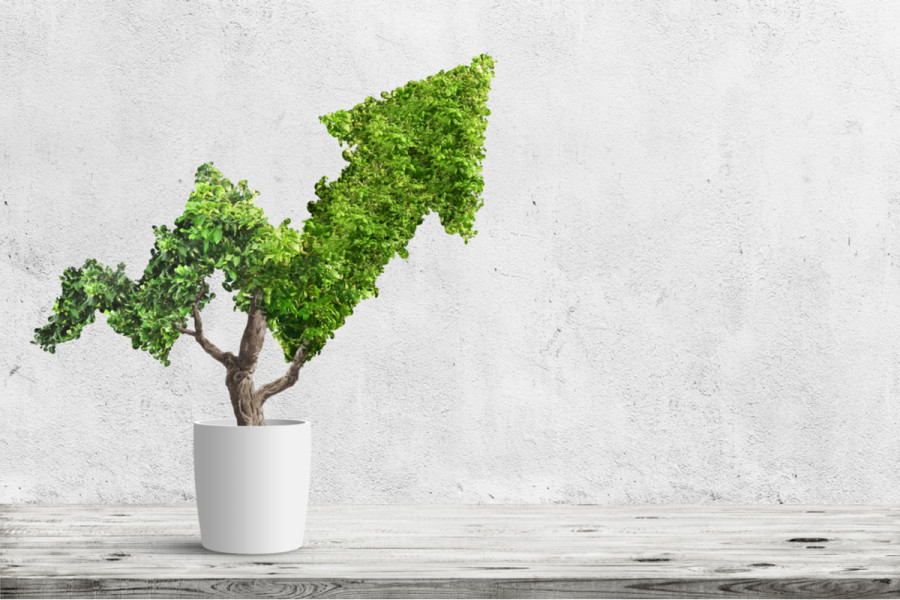Columns
Now is the time
The government and businesses need to plan a recovery that is greener and more sustainable.
Madhukar Upadhya
It’s yet another trying moment for the average citizen as the government has extended restrictions on travel and nonessential services until August 31 due to rising Covid-19 cases. For now, one can only hope that the virus outbreak doesn’t get out of control; and to this end, if the restrictions need to be further extended, so be it. Lives must be protected first.
With nearly two-thirds of businesses closed completely and transactions reduced by about 74 percent among those that are still in operation, thousands of jobs have been lost. This has crippled the economy which has affected everyone, although the lower middle class, primarily employed in informal sectors, has suffered the most. It’s difficult to predict when these lost jobs will resume, if they do at all. However, the government can’t waste time to see how we want to build our recovery plans, and while doing, it must consider one area in particular—environmental protection.
Fossil to clean energy
We must remind ourselves that the pre-Covid economy had its own issues. It had caused severe degradation of the environment, the rivers were polluted, groundwater had depleted beyond repair, urban centres were over-crowded, putting more pressure on local sources, and managing solid waste had become an unending challenge. Kathmandu had turned into one of the most polluted cities in Asia. Overall, the pace of nature’s decline had already been exceptional and required a fundamental reorganisation across technological, economic, and social systems to restore them. Planners were well aware of the decline, and yet, they didn’t commit themselves enough to change. The pandemic has forced us to revisit our actions.
The lockdown has had an exceptional, positive impact on the environment. Vehicular emissions decreased dramatically as the use of fossil fuels dropped. Dust and other suspended particles in the environment fell to minimal levels. Industrial waste emissions remained low. As a result, the environment, especially in urban areas, improved greatly. In Kathmandu and other major cities, people could breathe clean air and see clear blue skies for the first time in decades. Who wouldn’t want to have this improvement sustained—for the health of our communities?
The government, obviously, would want to resume economic activities as soon as the curve of transmission is flattened. Reverting to the status quo will mean continuing with the economy that led to large-scale environmental degradation. The question is whether we want to follow the same trajectory that got us into this mess before the pandemic or maintain the environment that we have experienced in the last five months. The latter demands that we re-examine our development trajectory and get back to a mutually effective connection between humans and nature.
An increasing number of people now accept that we need to shift from fossils to clean energy in the larger interest of the future of humanity. However, authorities with the power to possibly make the required reforms, which the state has agreed to do on several occasions, don’t seem to be ready to do so as of yet.
Except for the health sector that has been overwhelmed and exhausted by the pandemic, other development sectors were doing minimal routine work during the lockdown. This period provided these sectors with ample time to work on developing policies to maintain the aforementioned improvements by introducing new measures and regulations. Unfortunately, such initiatives were absent. The energy and transport ministries, for example, could have worked together to impose higher standards for vehicle conditions and stricter emission regulations. Introducing simple rules like lane driving and strictly adhering to the speed limit would significantly improve traffic conditions. Making dedicated bicycle lanes and encouraging the use of bicycles even for the delivery of goods such as takeout or online purchases within the city limits could help promote a bicycle culture. Replacing small delivery vans with electric three-wheelers would lessen demand for petroleum products.
Similarly, shifting from roads that are not only expensive to maintain in the hills but also known to have caused massive landslides and catastrophic erosion, to ropeways, a transport system that suits the landscape as well as the economy, would greatly benefit the natural environment. Considering the landscape and our economy, ropeways should have been the solution to the problem of our mobility, particularly for goods. In fact, cargo bicycles and goods transporting ropeways had been introduced and tested in the past, but government apathy discouraged their endorsement. Promoting such means of transport will not only improve the environment but prevent limited foreign currency reserves from haemorrhaging further.
The supply and agriculture ministries could have worked together on policies to better market local farm produce and ensure timely availability of imported fertiliser so that farming would become a little more rewarding to attract the youth who are otherwise certain to depart for foreign employment later on. Imposing stringent rules to curb middlemen would enable farmers to produce more and create opportunities in their villages. The Roads Department resurfaced the roads in the capital demonstrating that the lockdown period presented a unique opportunity to take advantage of urban life coming to a grinding halt by coming up with plans to make reforms, which otherwise would have been difficult.
More resilient future
It’s time to think outside the box in order to shape our recovery in a way that will reframe the future to deliver a more sustainable and more equitable revival tailored to suit our situation and needs. Instead of just shoring up our fledgeling economy, rendered further feeble by the pandemic, the government and businesses need to plan a recovery that is greener and more sustainable, which may require making drastic and necessary changes in our policies.
Critics may say that switching from fossil to clean, green energy may not get us to the growth rates of yesteryears for some time, but with the shift, we can ensure sustainable and low-risk prosperity. No doubt our development funds, in the wake of Covid-19, will be limited for years to come because our revenue sources have been hit hard. We’ll see less aid coming as donor countries themselves face unprecedented economic slowdowns. Current improvements in the environment aren't just a fluke; they’re a rare opportunity to re-route our development path to a more resilient future.




 9.7°C Kathmandu
9.7°C Kathmandu















